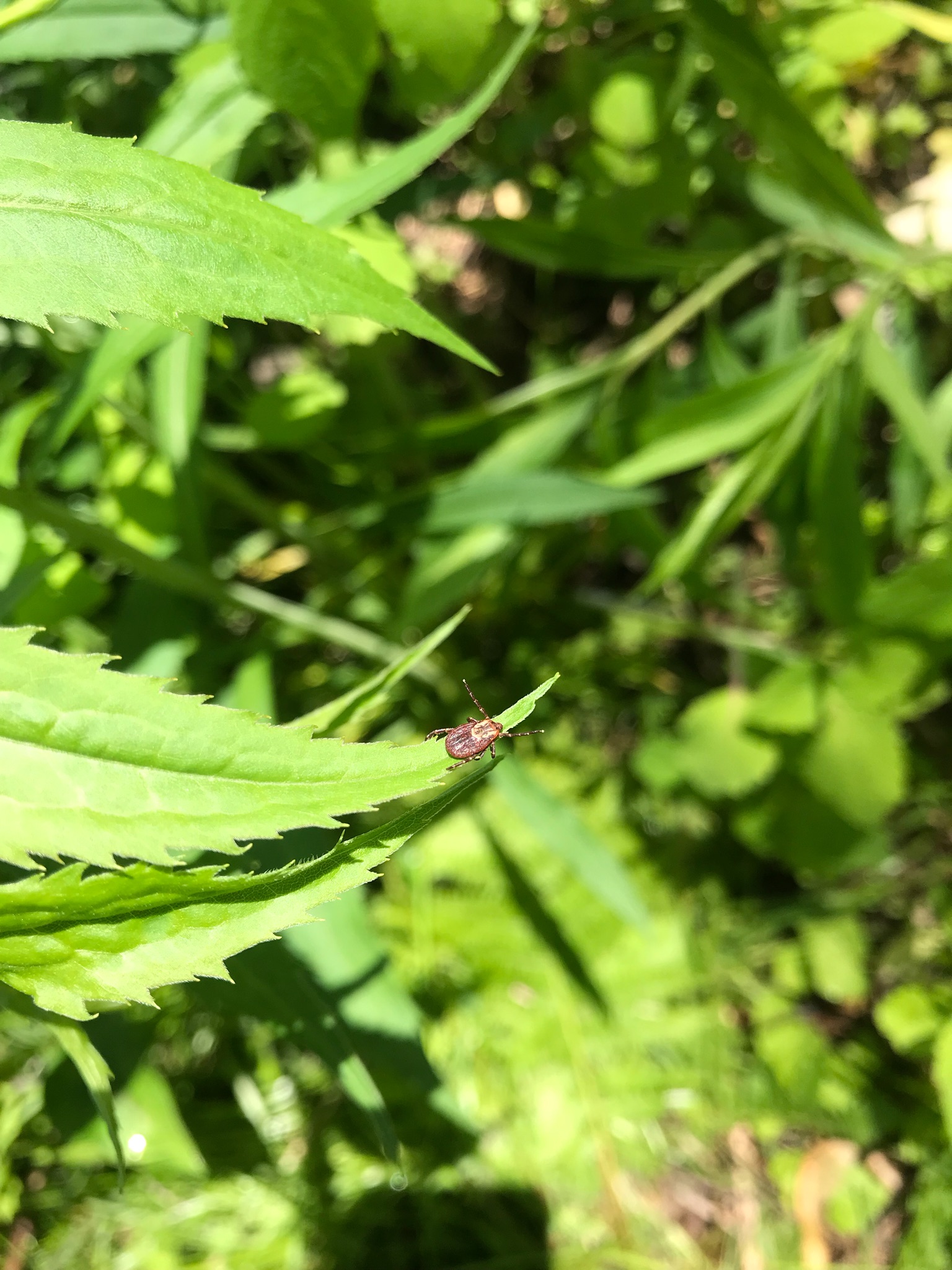Ticks are known to be blood sucking parasites that transmit various diseases to their host. Even though many people despise ticks, they do play an important role in the ecosystems they live in.
One species of tick, Deinocroton Draculi also known as “dracula’s terrible tick,” is believed to have been around during the prehistoric time period. It is believed that the Deinocroton fed on the blood of a feathered dinosaur since it was found preserved in Burmese Amber with a feather. Deinocroton went extinct around 99 million years ago and is the only known species of tick that has become extinct.
Scientists have been able to see how well an ecosystem is doing through ticks. If a tick population is low in an area, that could indicate that predators of smaller animals are out of control. Ticks are great meals for a variety of animals like chickens, turkeys, ducks, quail, frogs, spiders, fire ants, and many more. Without ticks, the animals that primarily eat ticks would become extinct. This will then start a chain reaction where other animals become endangered and extinct.
Due to the reduction or elimination of deer’s predators like coyotes and bobcats, deers have become over populated. The population of deer has grown to over 30 million in the last 100 years. Deer have been one of the main food sources for ticks, and without ticks deer population would increase even more. Car crashes caused by deers will become more frequent. Vegetation will also start being eaten away, leaving many animals without a home like the forest songbird. Western New York Letchworth State Park lost most of its plants and trees, and cannot regenerate due to the abundance of deers. Scientists at NPS and Schoodic Institute at Acadia National Park in Maine studied the conditions of forests in 39 national parks. The scientists found that 27 out of 39 of the forests in the national parks are in danger due to the excessive amount of white tailed deer.
A massive loss of vegetation would throw off our global climate, making it more arid. Trees play a huge role in the water cycle by absorbing the rain water and distributing it through its leaves, once the water reaches the leaves some of the water will evaporate into the air. When trees absorb the water they also help filter the water from any excess sediment, nutrients, and toxins before the water enters any waterways. Without trees, serious drought would start to happen and animals would start to die. When rain would come it would become disastrous flooding resulting in tons of land being lost to the ocean. Plants help stop erosion, and with them gone coral reefs and other marine habitats would be smothered. Without plants to provide oxygen, carbon dioxide would become more present in the atmosphere making the air unbreathable.
Mice would also become more rampant without ticks feeding off of them. Mice spread diseases like leptospirosis, salmonella, and tularemia though it won’t be spread through a blood sucking parasite. These diseases would be transmitted through the mouse’s fecal matter, urine, and saliva. Everything from the surfaces we cook on to the air we breathe would be contaminated by mice, resulting in a lot of people getting sick. In order to keep their teeth in decent shape, mice will chew different materials like wood, plastic, soft vinyl, and rubber. If mice did enter your house, it could cause a great deal of damage by chewing through wires and insulation.
Though ticks can be quite annoying especially when they bite you or a loved one, they do play an important role in the animal kingdom. Ticks help keep different ecosystems in balance, so animals like deer and mice do not destroy the world.



